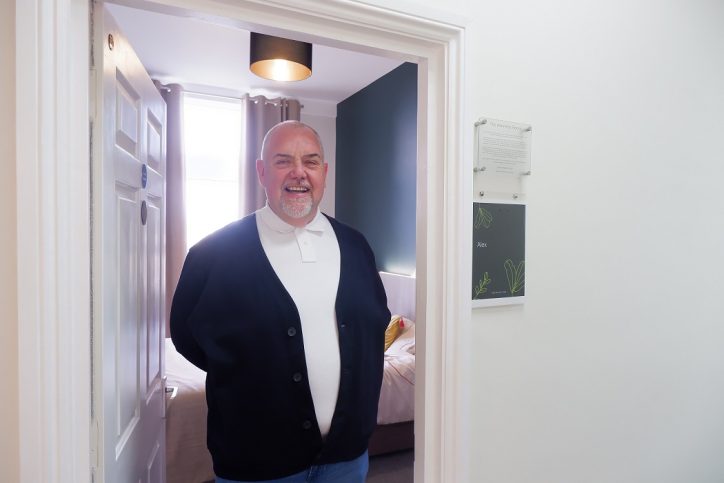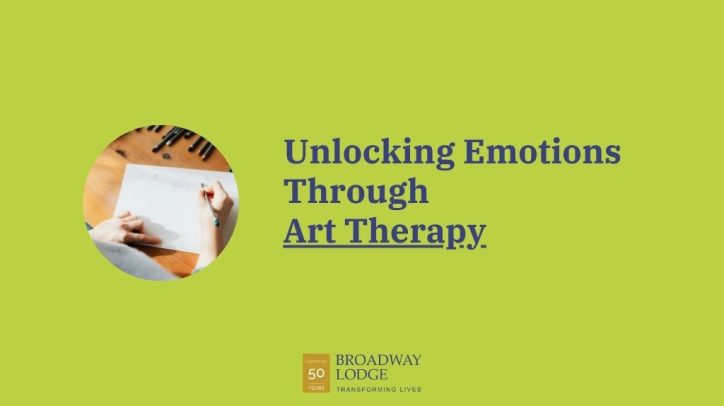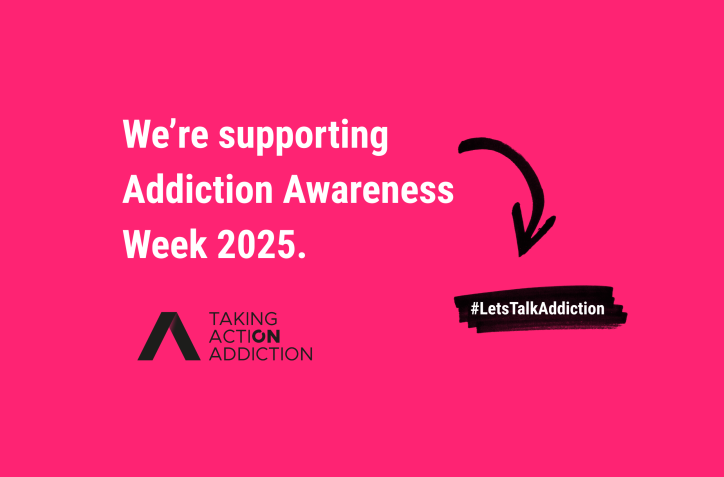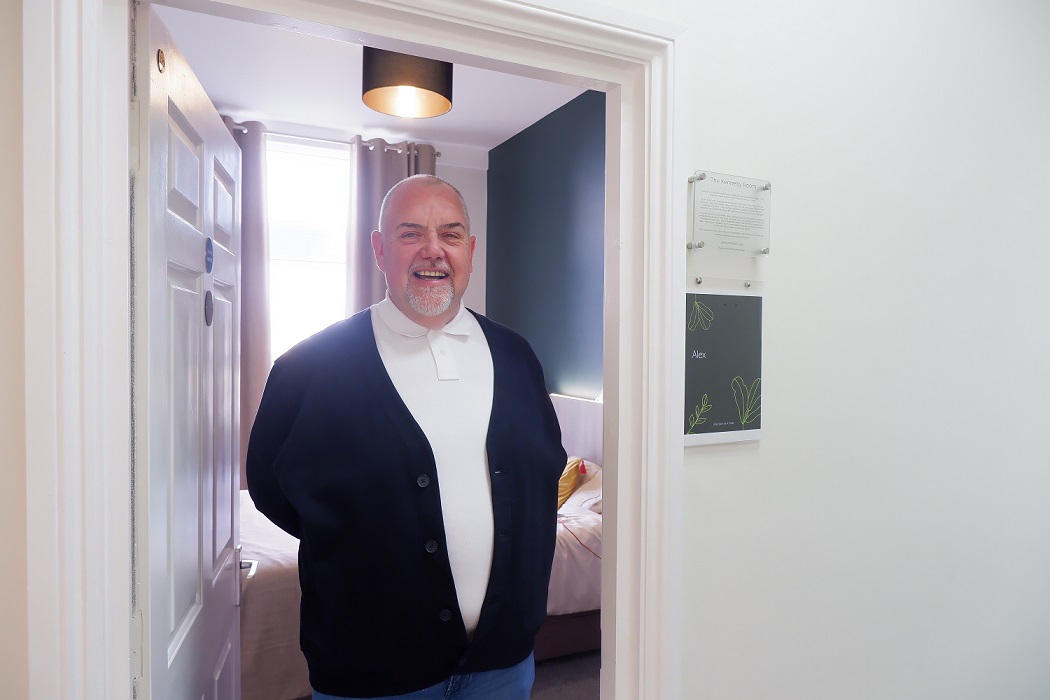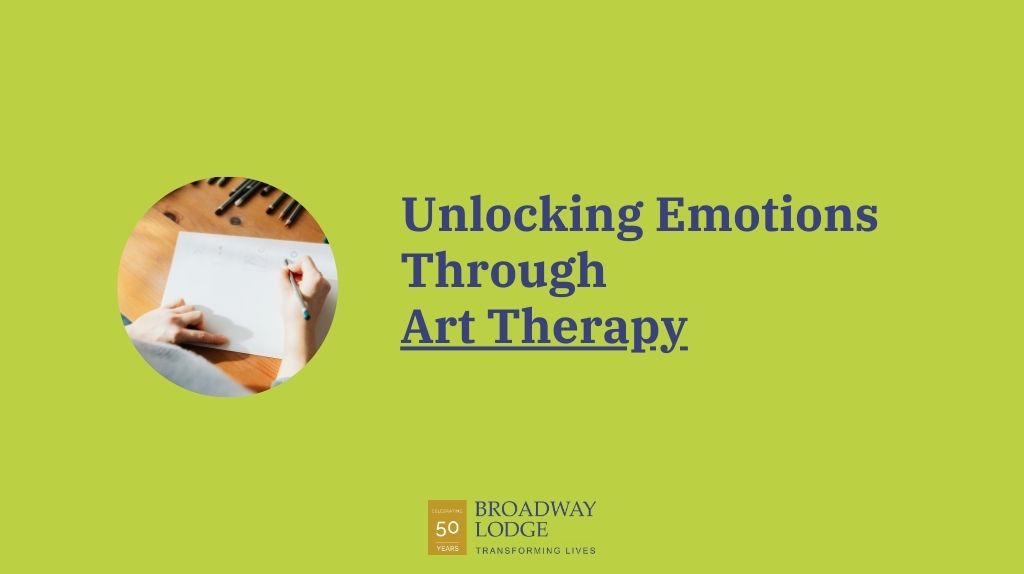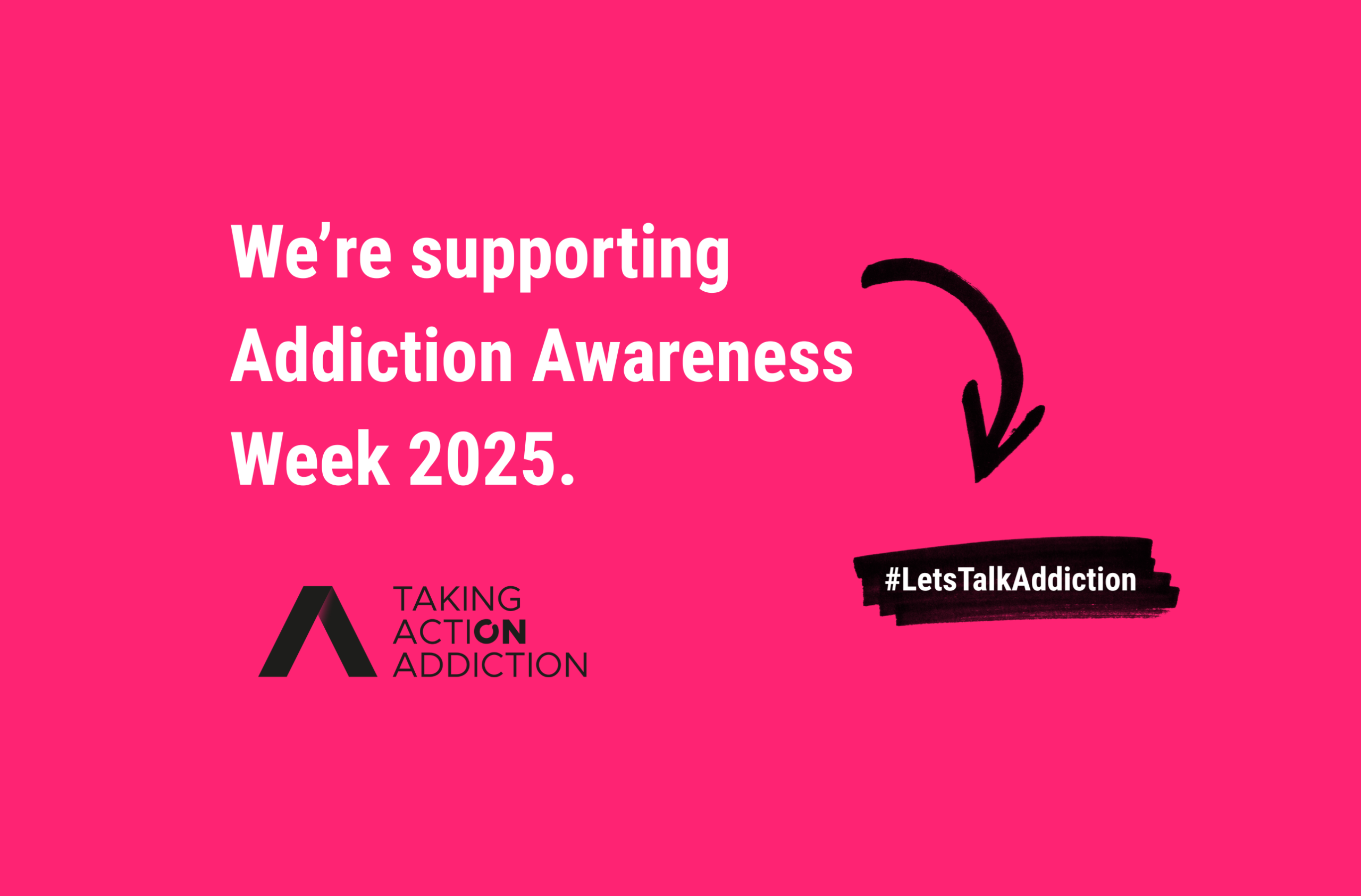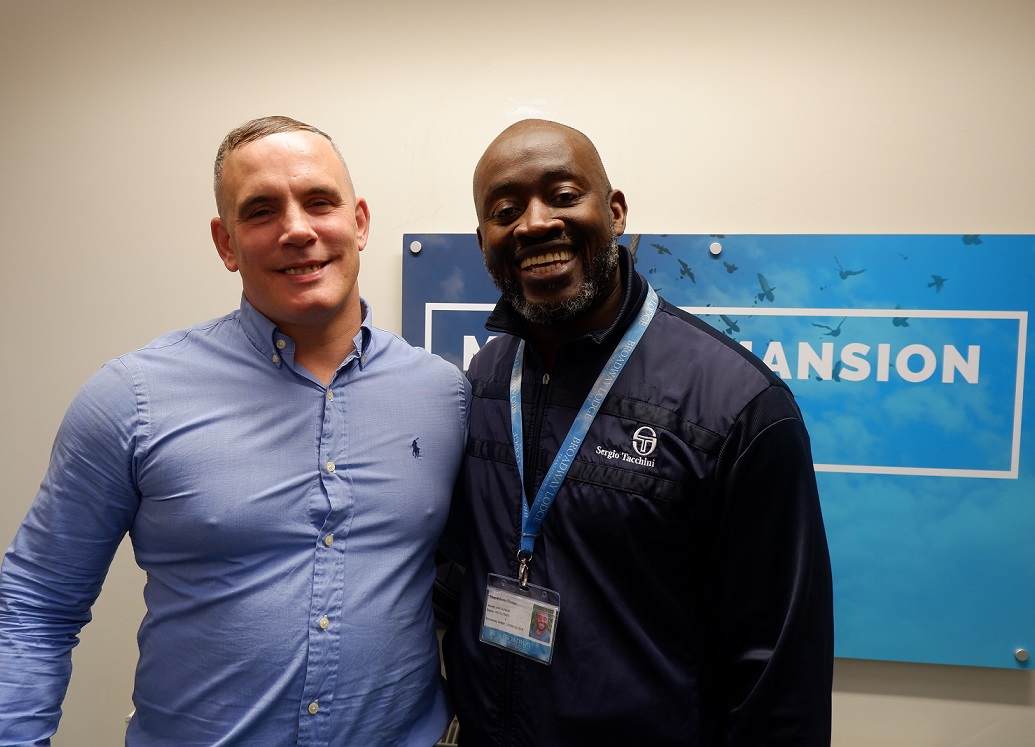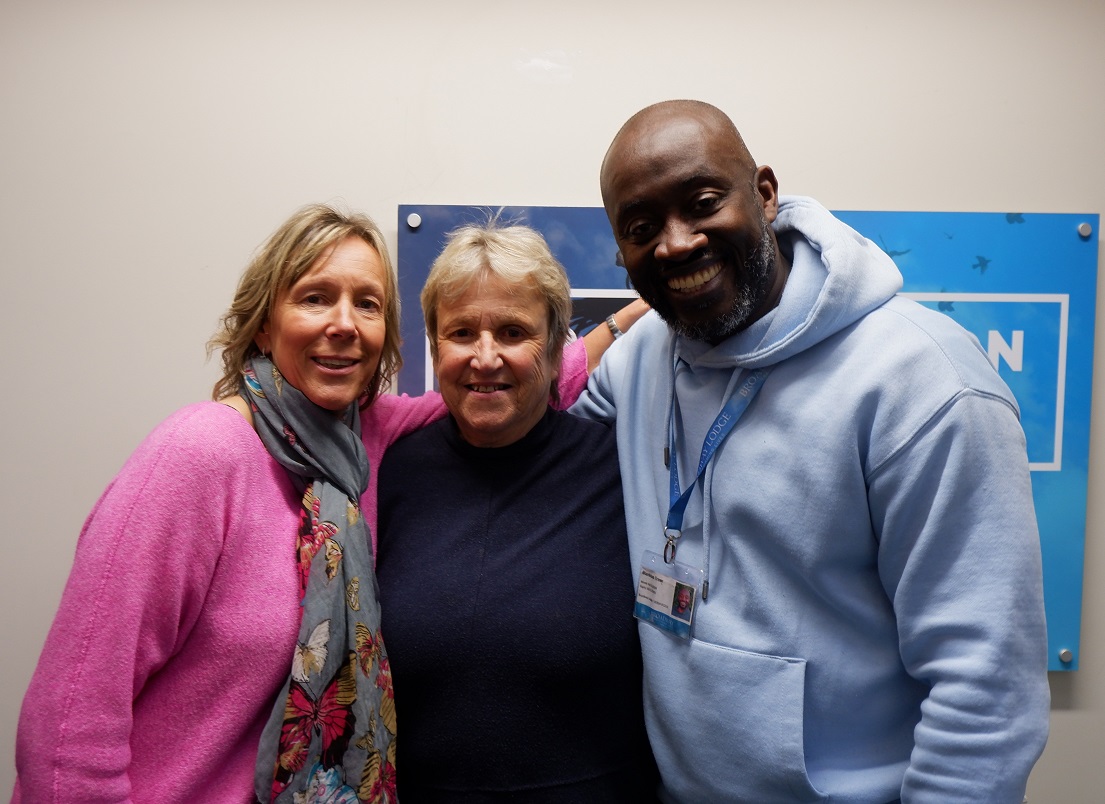Mental health illnesses such as depression and anxiety often coexist alongside addiction. This is known as dual diagnosis. With many of the people we speak to being affected by a mental health illness, in addition to the fact that this year has been particularly challenging mentally and emotionally for a lot of us, we want to share this post to explore mental health. In this, we look into the link between mental health and addiction and have provided some advice about where you can go for support if you find your mental health declines.
What is ‘mental health illness’?
Mental health refers to our psychological, emotional and social wellbeing and it impacts the way we think, feel and act in our daily lives. If we suffer from a mental health illness (also known as ‘mental health disorder’), it will affect our mood and the way we think and behave. Just like there are many different physical illnesses, there are a wide range of mental health disorders too, from schizophrenia to obsessive-compulsive disorder, phobias and eating problems. But these are recognised and treatable, so just because you aren’t always feeling physically ill or in pain, it’s important to reach out for help because our mental wellbeing can significantly affect our quality of life so we need to look after it. It’s also important to know that you’re not alone and that it’s okay to ask for help.
This clear and simple animation below was created by mental health charity Mind and succinctly explains what mental health conditions are. You can find detailed information about specific mental health conditions on their website here.
Being diagnosed with a mental health illness isn’t anything to feel ashamed of. It can actually be a relief to finally begin to understand why you feel the way you do and know how you can manage it to start to feel better.
Finding mental health support
Reach out to someone you know

Everyone needs someone who will take the time and trouble to listen when they are worried or experiencing problems. Important sources of support could be someone you know, whether a relative, close friend or a colleague for example. Sometimes a talk with them may be all that is needed. The popular saying “a problem shared is a problem halved” exists because it really can feel like a weight is lifted once we’ve talked over feelings or a situation with someone else.
GP
But if things persist or won’t go away, seeing your GP should be the next port of call. Their understanding and advice can be invaluable. The GP themselves or a nurse in the surgery can often provide the help required or they may signpost you to relevant organisations appropriate for your needs.
Charities
There are many specialist voluntary organisations providing a wealth of information for specific conditions and there will often be a helpline to call so that you can speak to someone in confidence who will listen and provide advice. For example, the Samaritans is particularly helpful for anyone experiencing a life crisis and we would urge anyone feeling suicidal to call their free 24-hour helpline on 116 123. The charity Mind provide information and tips and advice for a range of different mental health illnesses. Cruse Bereavement Care support people stricken by grief and PTSD UK offer support and information to people affected by post-traumatic stress disorder. These kinds of charities can be extremely helpful and engaging in the support they offer can settle feelings of anxiety and low mood without the need for specialist care.
Mental health services & psychiatric support
Support from NHS mental health services can enhance the help and care that’s given solely by your GP. Your GP may refer you to see mental health nurses, psychologists, psychiatrists, occupational therapists and/or social workers who all have specialist skills and facilities they can use to help you. Together, these specialists work as a mental health team. If you do see a specialist from a mental health team you will be normally be allocated a key worker who will work with you to put together a care plan. This plan will involve other people in your care such as your GP, social worker or a family member. If you are assessed and deemed to have mental health problems, social services can be approached for a social care needs assessment. This would then be a combined support approach between the mental health team alongside social services.
Symptoms of mental health illness
When suffering with a mental health problem, it’s common to experience unpleasant and prolonged feelings of distress such as anxiety, confusion, irritability and anger as well as more disabling symptoms. It can be really difficult to endure and cope with these alone so support is required to help you to overcome these. Symptoms can include:
- Finding it difficult to get on with other people or to cope with the usual stresses and strains of daily life.
- Urges to harm yourself or a fear being harmed by someone else.
- Feeling controlled by somebody and believing that neighbours or complete strangers are talking about them.
- Hearing voices when no one else is around.
- Making poor judgements and bad decisions.
Everyone is unique so we are all affected in different ways and these are just a few of the symptoms that can be experienced to signal a problem.
So what can be done to stop troublesome symptoms caused by a mental health illness?

Talking treatments
When things become more challenging, talking with a professional counsellor or therapist in one to one sessions can clarify your feelings and thoughts and help you understand what is happening. Sessions are confidential and it’s a safe environment where you can be open and honest and share your feelings. Simply putting things into words can help you to make sense of your problems and accept that the feelings you’re experiencing are reasonable. Talking with a professional will unearth the level of criticism you have for yourself and the therapist will advise what positive actions you can put in place to start feeling better and they will help you change the debilitating thought patterns.
Medication
There are an array of medications that can be prescribed to help to alleviate the symptoms of mental health illnesses. For example, anti-depressants can help you regain motivation after a sustained period of low mood. These are not addictive but tranquilisers (e.g. neuroleptics such as chlorpromazine and haloperidol) are often prescribed for people suffering with hypomania or schizophrenia and can be addictive.
Self-help
Once taboo, the subject of mental health is thankfully being widely spoken about increasingly more now that society recognises how common it is and how important it is to look after mental wellbeing in the modern world. There is a vast pool of information online and self-help books available with tips and advice for how you can overcome the symptoms of some mental health illnesses such as anxiety and depression. The NHS website, for example, contains detailed information for different mental health illnesses and has a depression self-help guide to download (accessed here).
There are also a range of different apps available to support you if you suffer with a mental health condition, ranging from ones that can help to reduce the urge to self-harm to apps that focus on breathing to relax and overcoming panic attacks.
It’s important to practice self-care and to do things that can help you to relax when you’re not feeling yourself. Some of these techniques can be easily achieved and remember not to feel guilty about taking time out for you. Methods of self-care could include:
- Speaking to a loved one or someone you know to talk through your feelings when you’re struggling, or if this isn’t possible, ring a helpline like Mind.
- You may enjoy a soak in a scented bath or something else that helps you to unwind.
- Push yourself to go for a walk in the fresh air and concentrate your mind on simply listening to all of the sounds you can hear for the duration of your walk to allow your mind to rest.
- Practice mindfulness or find a relaxing guided meditation to follow on Youtube.
- If you are triggered or aggravated by the news or social media, have a break from these.
- Create a list of positive affirmations and read them aloud to yourself daily. There are lots of ideas and help about how to do this online.
- Practice yoga or do exercise you enjoy.
Is there a link between mental health illness and addiction?
Over the years a significant amount of research has been undertaken to explore this link and results show there is a definite connection between mental illness and the use of addictive substances. When you have both a substance abuse problem and a mental health issue, such as depression, bipolar disorder, or anxiety, it is known as ‘co-occurring disorder’ or ‘dual diagnosis’. Dealing solely with alcoholism or drug addiction is never easy but it’s even more difficult when you’re also struggling with co-existing mental health problems.
In co-occurring disorders, both the mental health issue and the addiction have their own unique symptoms that may get in the way of your ability to function at work, maintain a stable home life, handle life’s difficulties and relate to others. To make the situation more complicated, the co-occurring disorders also affect each other. When a mental health problem is left untreated, the substance abuse usually gets worse. And when alcohol or drug abuse increases, mental health problems usually escalate too.
Co-occurring substance abuse problems and mental health issues are more common than many people realise. It’s been reported that of all people diagnosed with a mental health illness, 29% abuse alcohol or drugs and around 50% of individuals with severe mental health disorders are affected by substance abuse. Similarly, 53% of drug abusers and 37% of alcohol abusers also have at least one serious mental health illness.
What comes first: Substance abuse or the mental health problem?
As detailed above, substance abuse and mental health problems are closely linked but one doesn’t necessarily cause the other. Drug and alcohol treatment sector website, Findings, summarise the results of years of research into this in an article about dual diagnosis. They say research shows:
- Drinking and drug use can directly cause mental health problems.
- Drinking and drug use can aggravate or exacerbate existing mental health problems or symptoms.
- People may drink and take drugs to try to relieve the adverse symptoms of mental health problems (sometimes referred to as ‘self-medication’).
- The effects of withdrawing from many illicit drugs can produce or mimic symptoms of mental health problems, as can the excessive use of stimulants.
They do point out that the question of which came first isn’t of primary concern to the person affected by the co-existing mental health and addiction problem. The most important thing is that effective, integrated mental health and addiction support is available to people when they need it.
Recognising a dual diagnosis
It isn’t always easy to decipher whether you’re suffering with solely an alcohol or substance abuse problem or if in fact you have an undiagnosed mental health illness co-existing alongside addiction. We would always recommend that you speak to a professional, such as your GP, who will assess your feelings and behaviours and should be able to diagnose what’s going on for you. You can also engage with your local drug and alcohol service for help. However, there are some general signs that could mean you have a co-occurring disorder so if the below questions (taken from HelpGuide), resonate with you, this could indicate dual diagnosis.
- Do you use alcohol or drugs to cope with unpleasant memories or feelings, to control pain or the intensity of your moods, to face situations that frighten you, or to stay focused on tasks?
- Have you noticed a relationship between your substance use and your mental health? For example, do you get depressed when you drink? Or drink when you’re feeling anxious or plagued by unpleasant memories?
- Has someone in your family grappled with either a mental disorder or alcohol or drug abuse?
- Do you feel depressed, anxious, or otherwise out of balance even when you’re sober?
- Have you previously been treated for either your addiction or your mental health problem? Did the substance abuse treatment fail because of complications from your mental health issue or vice versa?
Dual diagnosis and denial
It can be really hard to admit how dependent you are on substances or alcohol, or how much they affect your life. It’s also understandable to ignore the distressing and frightening symptoms of mental health illnesses in the hope they will start to go away. Or you might feel ashamed or afraid of seeking help due to a fear of being judged. But these problems can happen to anyone – both addiction and mental health illness don’t discriminate and no one is going to judge you by asking for support. Recognising and accepting that you’re suffering with dual diagnosis is the first step to getting well.

Thankfully, help and advice is out there are we would like to emphasise that you don’t have to suffer in silence if you’re experiencing mental health difficulties or dual diagnosis. The right support and treatments combined with self-help techniques, will help you to start feeling happier and more able to deal with life challenges.
Useful Links
Cruse Bereavement Care for support with grief – https://www.cruse.org.uk/
Mind for information and support with mental health – https://www.mind.org.uk/
Samaritans for support in a crisis – https://www.samaritans.org/
Explore a comprehensive list of mental health charities on the NHS website – https://www.nhs.uk/conditions/stress-anxiety-depression/mental-health-helplines/


